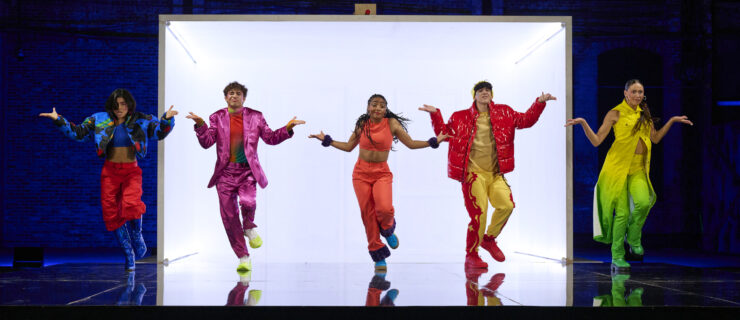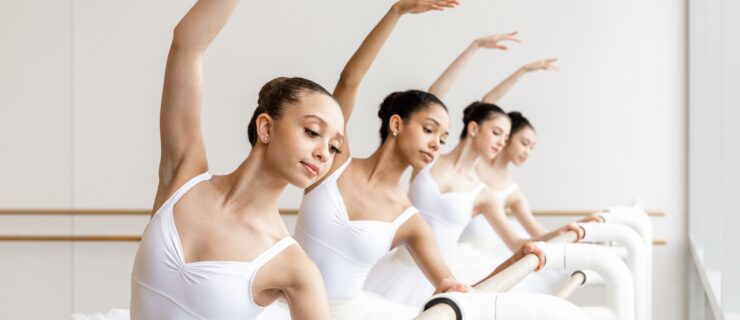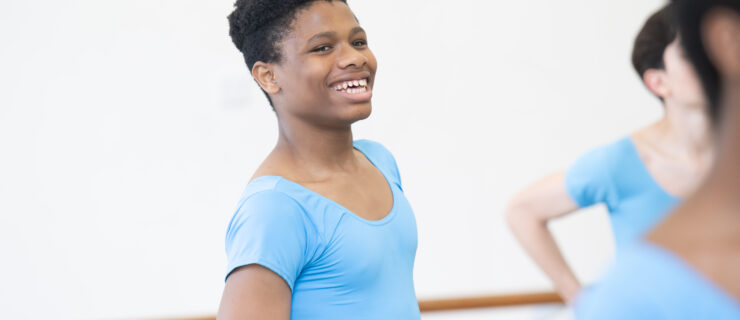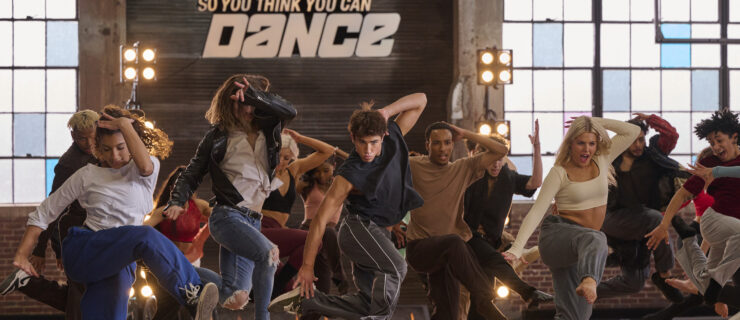When All the World's a Crowded Ballroom: What You Need to Know About Conventions, According to the Pros
“I vividly remember my first convention,” says choreographic superstar Brian Friedman. “I was 10 years old and so eager to take every single class—I didn’t want to miss a thing. I couldn’t sleep at all the night before. I had butterflies in my stomach. The fact that I can still remember that exact feeling 30 years later—clearly, going to convention had an impact on me.”
Conventions help breed top dancers in nearly every corner of the dance world, from ballet to ballroom to “So You Think You Can Dance.” From getting the opportunity to train in a plethora of styles to taking advantage of post-class networking, conventions will give you a leg up as you prepare to enter the professional (and crazy-competitive) dance world. But if you’ve never attended a convention, the whole concept can seem daunting. Fear not, convention newbies: We’ve gathered the best tips and advice from our panel of convention pros.
Logan Epstein
, student at PACE University, former dancer at Westchester Dance Academy in Mount Kisco, NY
Brian Friedman
, creative director of The PULSE on Tour, self-described “100 percent convention kid” growing up
Alyssa Ness
, student at Marymount Manhattan College, former National Senior Outstanding Dancer at New York City Dance Alliance
Anne Smith
, director of Hollywood Vibe
Be prepared for a long day.
“At most conventions, you’ll take 5 to 7 classes per day, and each class is 45 minutes to an hour long. They move pretty fast, and it may be crowded.” —Ness
Dress to impress…
“Your look is important. Your eye goes to the girl with the cool haircut or the guy with the swagged-out outfit. If you can get someone to see you, they’ll stick around to watch you dance.” —Friedman
…and to be remembered.
“I stay in one outfit the whole day, including during scholarship auditions. If you’re competing for a scholarship, one of the judges might have taught a class you were in earlier that day, and may remember you based on what you’re wearing.” —Epstein
Load up your dance bag.
“My bag weighs a ton during conventions! I pack at least two bottles of water, Emergen-
C for extra energy, snacks, Advil for when the soreness kicks in, and all my dance shoes.” —Epstein
Be extra early.
“Get to the ballroom 30 minutes before class starts. Give yourself time to stretch and warm up without feeling rushed. Not all classes will include a full warm-up, so take responsibility for your own body.” —Epstein
Work the entire room.
“Don’t stay in one spot, and avoid surrounding yourself with dancers from your studio—then you’ll dance just like you do at home.” —Friedman
Shhhhhhh!
“Don’t talk during class. Teachers hate it, and it shows you don’t want to be there. If you want to talk to your friends, do it outside the ballroom or at lunch.” —Epstein
Go to every class—especially the ones you’re nervous to try.
“The biggest mistake a dancer can make at convention is skipping class. Don’t
focus on your strengths—focus on your weaknesses.”—Friedman
It’s OK to drop down a level.
“If you can’t keep up with the pace of class, you can always ask your teacher if you can switch levels. You want to get the most out of your experience.” —Smith
Don’t worry so much about being seen.
“Many dancers—including my former self—are so worried about making sure the instructor sees them. If that’s your entire focus, you’re not getting the most out of class. If you’re clearly having fun, you’re a bright light in the room, no matter where you’re standing.” —Friedman
Know you’re not alone.
“Even dancers who have been to a thousand conventions still get nervous. You’re not the only one feeling that way, and you’re definitely not the only first-timer in the room!”—Smith
Be persistent, not perfect.
“No one expects you to be perfect—they just want to see who you are as a dancer and an individual. If you’re completely lost, it’s OK to raise your hand and ask a question. Teachers never mind questions!” —Epstein
Say ‘thank you’!
“There’s usually time after class to thank the teacher and take a photo together, but if he’s running late, don’t bombard him. There will be more opportunities to say ‘hello’ and ‘thank you.’ ” —Epstein
Don’t give up if you can’t keep up.
“I was totally the kid who just couldn’t keep up with the choreography we were learning. But the brain is a muscle. Train yourself at home, take extra classes, watch YouTube tutorials or DVDs and constantly be learning new choreography.” —Friedman



